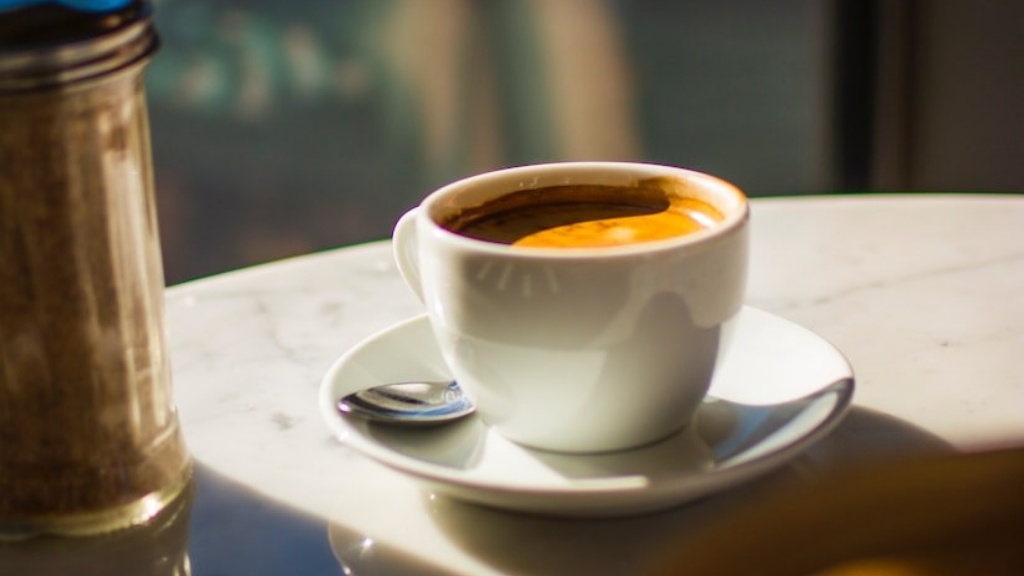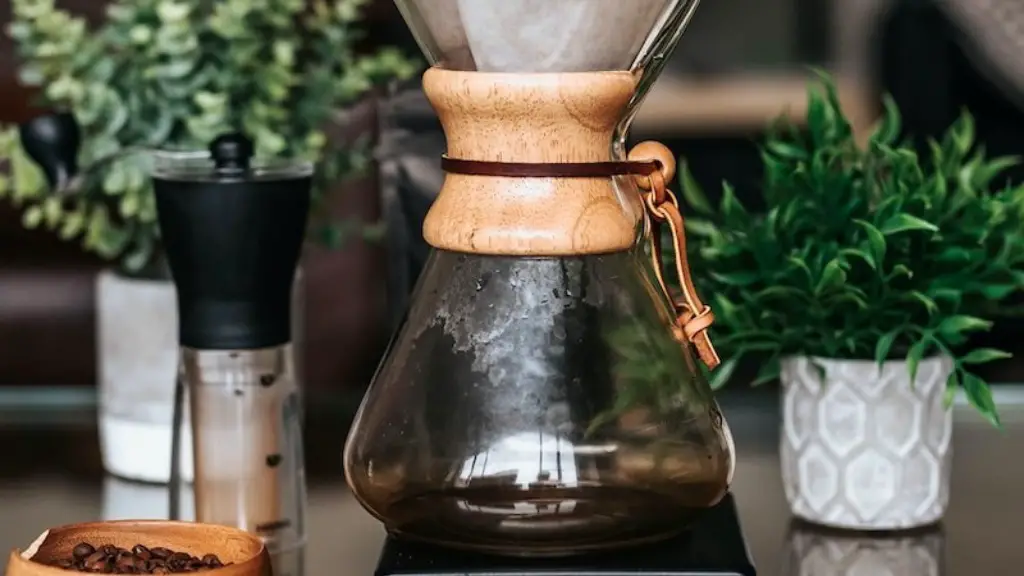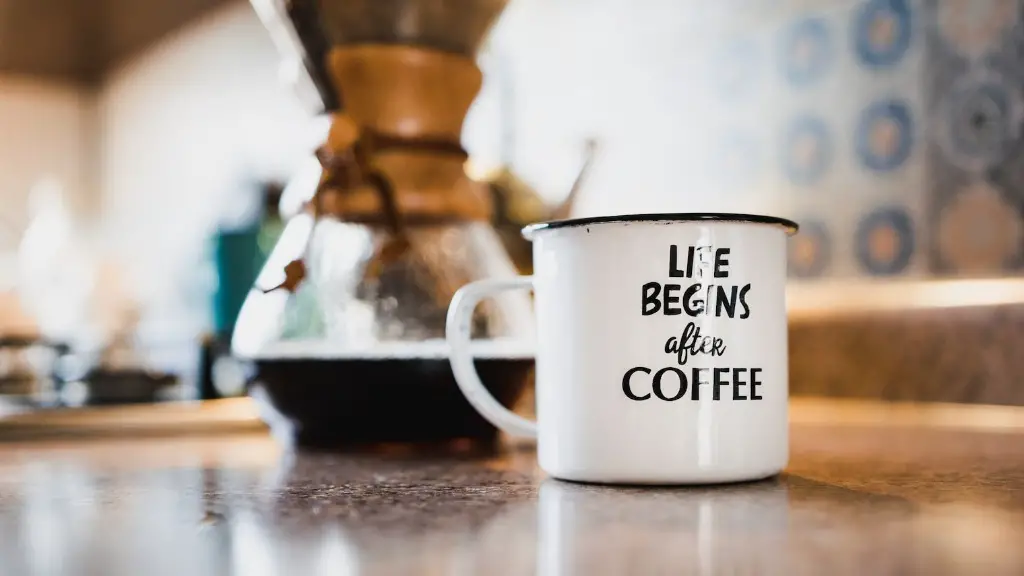Coffee is a daily staple for many people around the world, but for those with Gastroesophageal Reflux Disease (GERD) it may not be the best choice. Coffee increases the acidity in the stomach, which can make GERD symptoms worse. Heartburn, chest pain, and regurgitation are all common symptoms of GERD, and drinking coffee can make them worse. This begs the question – can someone with GERD still drink coffee?
The answer to this question is complicated and depends on the individual’s unique tolerance level, as well as the type of coffee they are drinking. Dr. David Greenwald, an expert Gastroenterologist at Maimonides Medical Center, says that people with GERD should avoid coffee, tea and other caffeinated beverages, but notes that some individuals may be able to tolerate it. “The general recommendation is to limit or avoid [coffee], but everyone has different tolerance levels and it may depend on the specific preparation,” he says. This means it’s important to be mindful of the type of coffee and brewing method used, as this could have an impact on one’s ability to tolerate coffee.
If you have GERD, but your coffee habit is still important to you, modifying the type of coffee you drink may be the answer. Dr. Greenwald recommends trying light roast coffees, as darker roast coffees are more bitter and acidic. Additionally, consider switching from espresso or cappuccino to a cup of French Press or cold brew, as alternatives that may be better tolerated. Even better, switch to decaf coffee, which contains lower amounts of acid and caffeine that may be better tolerated. As an added bonus, decaf coffee has been associated with improved sleep.
It’s important to note that coffee is not the only beverage that can cause GERD flare-ups. According to Dr. Greenwald, avoiding food and beverages with high acidity is most important. “Foods and beverages that are highly acidic, like citrus, tomato, vinegar or coffee, should be limited or avoided,” he says. Additionally, Dr. Greenwald notes that carbonated beverages, including soda and sparkling water, can cause GERD flare-ups.
GERD is a complex condition that affects many people, and it can be especially tricky when it comes to coffee. It’s important to remember that everyone has a unique tolerance level, so what works for one person may not work for another. If you are dealing with GERD, talk to your doctor or a nutritionist to determine the best approach for managing your symptoms.
Limit the Caffeine Intake
Dr. Greenwald stresses the importance of limiting the amount of caffeine you consume. “When people with GERD decide to drink coffee, they should limit their intake to one cup a day, at most,” he advises. Additionally, Dr. Greenwald recommends avoiding coffee after dinner as this could increase the risk of a GERD flare-up.
If you do decide to drink coffee, it’s important to consider the timing. If GERD is a problem, try to avoid drinking coffee on an empty stomach or too close to meals. This gives your body time to digest the food and may help to lessen the acidity in the stomach. If you suffer from GERD, consider drinking coffee at least one hour after or two hours before your meal.
Choose Organic Coffee
Organic and pesticide-free coffee is always a better choice. Studies have shown that conventional coffee beans tend to have higher levels of mold and fungus, which could contribute to GERD flare-ups. Switching to organic, fair-trade coffee may have a positive impact on GERD, as it’s free of these irritants and has less impact on the digestive system.
Additionally, organic and pesticide-free coffee has been associated with improved mood and mental clarity. This is due to the fact that organic, toxin-free coffee contains higher levels of minerals, such as magnesium and calcium, which can improve mental clarity and boost mood.
Increases Blood Pressure
Coffee has also long been linked to higher blood pressure, but this may not be the case for everyone. A recent study found that regular coffee drinkers may not have significantly higher blood pressure than those who do not drink coffee. This means that if you are suffering from high blood pressure, it may be safe to drink coffee if you are otherwise healthy. However, if you are prone to high blood pressure, consult with your doctor before drinking coffee.
Additionally, those with heart conditions should steer clear of coffee and other caffeinated beverages, as they may worsen heart symptoms. Dr. Greenwald recommends avoiding coffee and other caffeinated beverages if you have any type of heart condition. For those with GERD, caffeinated drinks can worsen GERD symptoms, so it’s important to be mindful of the type and amount of caffeine you consume.
Limit the Consumption of Tea
Dr. Greenwald recommends avoiding tea, as it contains high levels of caffeine and acidity that can worsen GERD symptoms. However, if you do choose to drink tea, select herbal or green tea varieties as these contain lower levels of caffeine and acidity. Even better, choose decaffeinated tea or caffeine-free herbal tea as a safer alternative for those with GERD.
Finally, it’s important to note that GERD can also be caused by eating certain foods and beverages. High-fat and spicy foods, such as french fries and buffalo wings, can contribute to GERD flare-ups. It’s critical to be mindful of your diet and to stay away from foods that trigger GERD symptoms.
Can Drinking Coffee make GERD Worse?
Drinking coffee can certainly make GERD symptoms worse, as it increases the acidity in the stomach. However, it’s important to remember that everyone has different tolerances and some people may be able to tolerate coffee better than others. If you choose to drink coffee, opt for light roast varieties and consider switching to decaf coffee as an alternative. Additionally, be mindful of the timing and limit the amount of caffeine you consume to one cup a day at most.
Learn to Identify GERD Triggers
It’s important to know your triggers and to be mindful of the type of food and beverages you consume. High-fat, spicy and fried foods can trigger GERD symptoms, so it’s important to limit your consumption or avoid them entirely. Additionally, foods and beverages with high acidity, such as grapefruit, citrus, tomato, vinegar, coffee and other caffeinated beverages, should be avoided or limited.
Taking a proactive approach to managing GERD is essential. Talk to your doctor or nutritionist to develop a personalized plan that works for you. Changing your diet and lifestyle can make a huge difference in managing GERD and it may even be possible to enjoy coffee in moderation.
Consider Taking Natural Supplements
If you suffer from chronic GERD and coffee is still triggering symptoms, consider taking natural supplements. Ginger, turmeric, probiotics and apple cider vinegar are all natural supplements that have been proven to help with GERD symptoms. Additionally, natural antacids, such as calcium carbonate and magnesium, are also popular for soothing GERD symptoms. Talk to your doctor or nutritionist about what supplements may work best for you.
It’s important to remember that everyone has different tolerances and managing GERD can be different for everyone. Talk to your doctor or a nutritionist to develop a personalized plan to better manage your symptoms. With the right plan, it may be possible to enjoy coffee in moderation.




